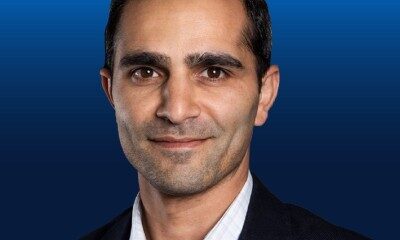
Featured Item

When the political becomes personal
Former apartheid activist John Schlapobersky used the Jewish Literary Festival to pay tribute to his childhood doctor, Dr Alec Folb, who was in Vereeniging on Human Rights Day.
“He was on casualty duty in the hospital in Vanderbijlpark on 21 March 1960, when the Sharpeville massacre took place,” said Schlapobersky. “He went there immediately, and his account of the casualties as they came in with bullet wounds in the backs of women and children confirmed that they suffered atrocities at the hands of the police who said that they [the police] were protecting themselves. He got that material into the press, and he saw that the truth was told.”
Schlapobersky, much like authors Denis Hirson and David Dison, maintained that his political consciousness had shaped his life and books he has written.
In discussion with Judge Dennis Davis at the festival, they addressed the personal in the political.
Hirson, who now lives in Paris, left South Africa in 1973 at the age of 22. His family had been given three days to pack up their home in Johannesburg following the release from prison of his father, Baruch Hirson, who had served a nine-year sentence for sabotage.
The title of his book, My Thirty-Minute Bar Mitzvah, refers to his 13th birthday, when Baruch was allowed to spend 30 minutes with his son in the back of a prison department car at The Fort in Johannesburg. Seated in front were two prison officers.
Davis asked Hirson why he wrote this book so many years later. “I don’t know if I could have written it while my father was alive, it’s so charged with emotion,” he said.
Trauma continues for at least three generations, he said. “One of the key figures in the book is my daughter who, during preparation for her secular Batmitzvah, chose the story of Abraham and Isaac, and showed at just before the age of 12, that she understood deeply what had happened to me and my trauma when my father was arrested just before I was 13.”
Nevertheless, Hirson said he didn’t believe that his father set out to sacrifice his children. “There was sacrifice and choice, and I don’t believe for one minute that it was directed at me.”
In 1969, while a student at the University of the Witwatersrand, anti-apartheid activist Schlapobersky was arrested and detained in solitary confinement, tortured, and eventually deported. His book, When They Came For Me: The Hidden Diary of an Apartheid Prisoner, details his struggle for survival.
He now works as a psychotherapist in London in the field of trauma. Davis asked him, similarly, why it had taken 50 years for him to write the book.
“I wrote the book when I could,” was his reply. “I had to wait until I was strong enough to write my own story. I was a 21-year-old lifted out of my life and subjected to a level of degradation that deprived me of almost everything except for the determination to survive and tell my story.”
After his arrest, he was taken to Pretoria, where he was interrogated for a week without sleep and had to stand on a brick for much of the time. He remembers being asked by then police captain, Johann Coetzee, if he recognised his assistant, who it transpired was a police spy.
“I was sitting next to you at university in your class when you were arrested,” the man said. “We were in Comparative African Government and Law together, and I watched you being taken out.”
The chief interrogator of the security police, “Rooi Rus” Swanepoel (who gave the order to fire on the children of Soweto in 1976) arranged for Schlapobersky to see a Dr Venter who took blood and pronounced that there was “niks verkeerd met hom – ry hom geweld”. (There’s nothing wrong with him – ride him as hard as you can.)
“That’s a doctor speaking,” Schlapobersky commented to the audience.
A doctor, Schlapobersky, made clear who was so different to Folb, whom he said, “wasn’t a liberal man and was very critical of me, but was a committed man of medicine.”
Dison’s book, The Good Nigerian, while not specifically political, has an “underlying theme of trauma and South Africa is a place where you suffer trauma”, Dison said. He recalled driving a truck close to Namibia at the age of 17, and “hoping not to be blown up by a landmine”.
Dison writes about the nature of violence inherent in Joburg society, “but I feel it’s important to show that underneath, there’s incredible goodwill”.
Once a distinguished human rights lawyer, Dison said he didn’t believe we understand the trauma apartheid caused. “We tend in this country to compromise and smooth over, deliberate, and the TRC [Truth and Reconciliation Commission] scratched the surface.
“I don’t believe that South Africa has come to terms with its past. It’s unfortunate because this ANC [African National Congress] government has become so negligent, that people say, ‘Well, now you can blame apartheid.’
“But actually the process that [TRC Commissioners the late Archbishop Emeritus Desmond] Tutu and [Alex] Boraine were engaged in could still be going on today. It should have become an ongoing investigation just so that the country could never go back to this kind of situation again.
“And here we are, slipping slowly back into it.”










